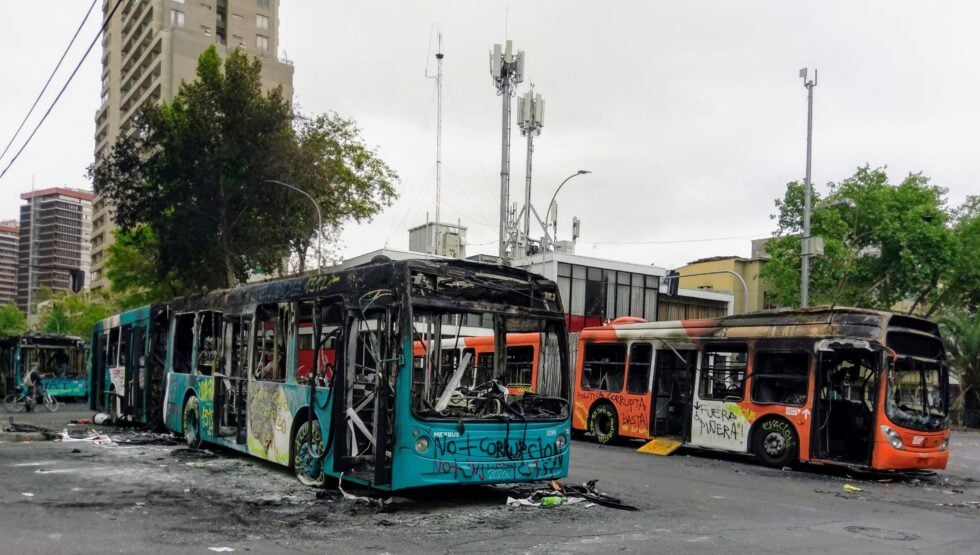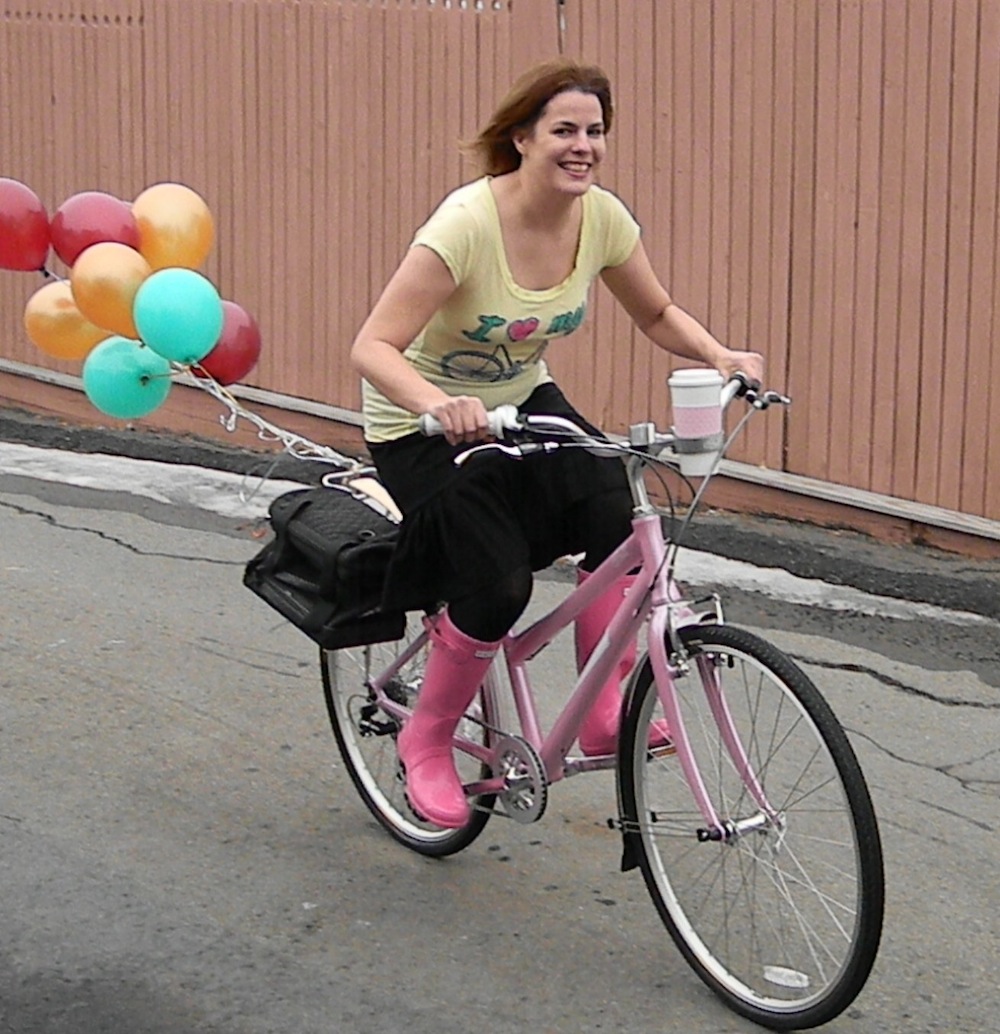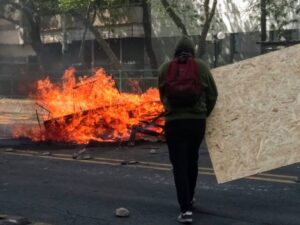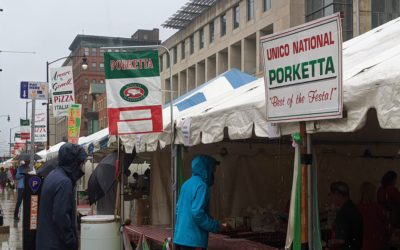Context of the 2019 Chilean Protests
October 2019 saw the worst civil unrest since the dictatorship of Augusto Pinochet, who ruled Chile from September 1973 and 1990. Blaming the breakdown of democracy and the economic crisis under Socialist President Salvador Allende’s presidency (1970-73) the military seized power leading to a regime that saw vicious suppression of political parties and the persecution of dissidents.
The October 2019 social uprising was ignited by a rate increase to the subway when a student jumped over a gate instead of paying, but discontent was brewing for a long time. Chile, while one of the wealthiest countries in South America, has the worst economic inequality. Universities, health care and pensions are privatized leading to a wide gap between the rich and the working and middle classes. Additionally, demand for rights for the Indigenous populations, gender & LGBTQ+ equality and environmental issues fueled growing unrest. One of the demands of the uprising was creating a new Constitution that hadn’t been updated since the Pinochet era.
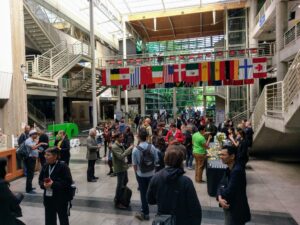
People from all over the world gathered for the 2019 Transformations Conference to tackle global issues.
The Transformations 2019 Conference
I went to Santiago for the Transformations 2019 Conference to present on art and social change in Lackawanna County. The conference mission is to bring together scientists, researchers, artists and non-academics from all over the world to attempt to create better systems to solve problems like climate change, gender equality, education and poverty.
The uplifting conversation about the possibility of solving global issues made the future seem brighter as I strolled around Santiago enjoying restaurants, parks and museums. So suddenly finding myself in the middle of an uprising watching people burn busses, tear down street signs and running from Carabineros, the militarized police, spraying tear gas into streets was a scary irony.
Portrait of Social Unrest
I walked among throngs of people banging on pots and pans. Called Cacerlozes, from the Spanish for casseroles, it is a tactic first used n 1971 by right wing women of the Femine Poder women who were protesting Allende’s radical social reforms that had led to food shortage and high inflation and used again by the left wing to protest the Pinot regime). Protestors chanted like “El pueblo unido jamás será vencido” meaning “a people united will never be defeated” and sprayed graffiti everywhere.
The destruction left in the streets was heartbreaking. I wondered how they would ever rebuild. But I saw also a surreal joy demonstrated by protestors, mostly young people. They were committed to tearing down the old, opening the door for equity, justice and a better future. It’s easy to say violence is never a solution, but the reality is more uncomfortably complex. But tearing things down also means rebuilding and that is a much harder and longer road.
Chile Today
The uprising did spark change and a new dawn appeared to be on the horizon when leftist who Gabrile Boric won the election in December of 2021 with a bigger margin than expected replacing Sebastián Piñera, a neoliberalist whom many believe added to Chile’s economic crisis. A new progressive Constitution began being drafted that would ensure such things as more social support, grant increased autonomy for indigenous nations in Chile, require gender parity in governmental bodies, mandated universal health care, access to legal abortion, and ecological rights. Shockingly the proposal was voted down on Sept. 4 by a Constitutional Assembly including by marginalized people who would have stood to benefit from it. Some have argued it was too liberal for a still conservative country and that people feared how proposed changes would be funded.
Analyzing the reasons why the Constitution was rejected and Chile’s political future is beyond the scope of this post but certainly fear of change and losing of power and spread of false information were part of it, which eerily reminds me of what the United States country faces now. Being in the middle of a social uprising jarred me into facing the question of how a democracy survives. It is only the commitment to abstract ideals that keep a country united and what happens when shared beliefs collapse? The Chilean uprising was pre-pandemic with its political overtones the January 6 Insurrection or the overturning of Roe vs. Wade and these questions seem more important than ever. Can we find our way back to a nation of people who despite having different viewpoints and even political beliefs respect each other and works to make a more perfect union without tearing everything apart? 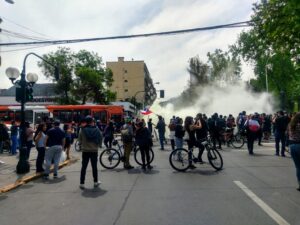
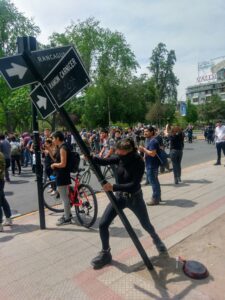 Hope and the Future
Hope and the Future
Upon this third anniversary of the uprising last week protests broke out with 200 people jailed, clashes between police and protestors that left 40 people injured and ransacking of shops. President Boric is at an all time low backed by only 27% and the country must now begin the daunting task of going back to the drawing board regarding the new Constitution. There are many uncertainties. I made friends in Chile and I worry about them, as I also worry about the future of my own country. But despair is not an option. The heart of the Transformations Conference was that we are all working towards the same things and it can be excruciating, painful and long process but we need to remember we have survived as because of cooperation. One highlight of the conference was touring the the National Art Museum of Chile. Belief in the human spirit can seem naïve during tough times, but the truth is it is the only choice.
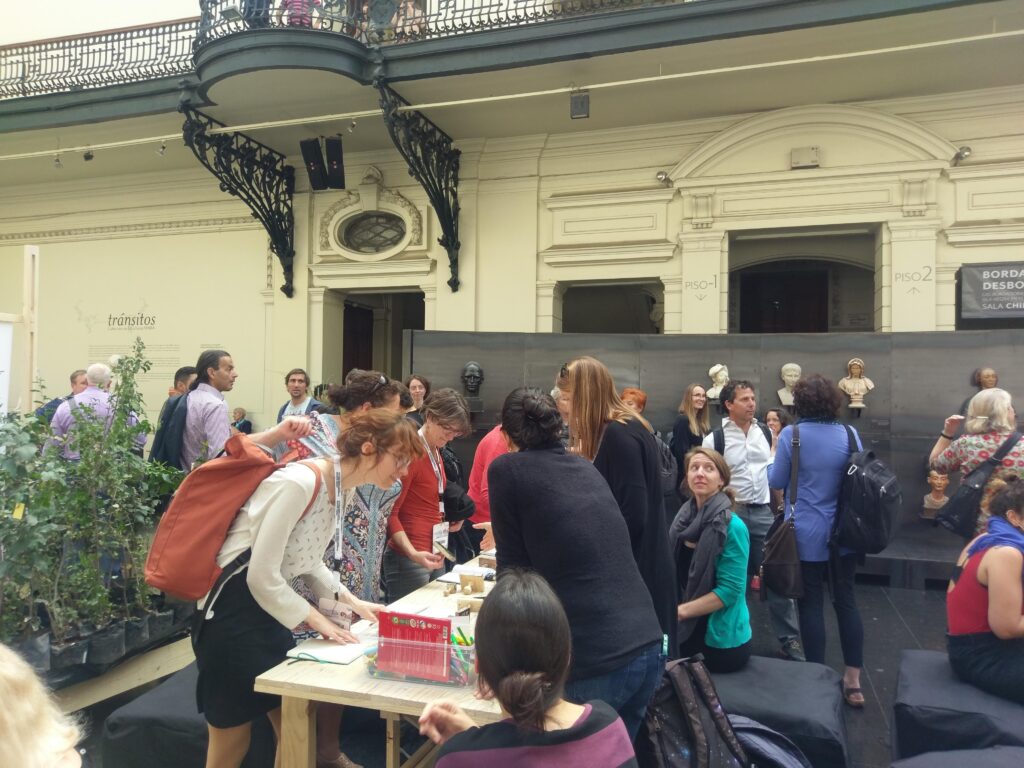
Transformations 2019 Conference Tour of the National Art Museum of Chile in Santiago.

